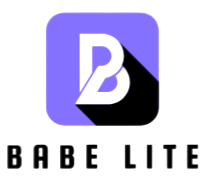Automate Excel Formulas Instantly with New AI-Driven Generator
In today’s fast-paced business environment, efficiency is paramount, and automating repetitive tasks can significantly boost productivity. One of the most exciting advancements in this realm is the introduction of an AI-driven formula generator for Microsoft Excel. This innovative tool promises to revolutionize how users interact with Excel by simplifying the process of creating and applying complex formulas. Microsoft Excel, a staple in data analysis and management, offers an array of functions that can sometimes be daunting, especially for those who are not experts in spreadsheet manipulation. Formulas are the backbone of Excel’s functionality, enabling users to perform calculations, analyze data, and make data-driven decisions. However, constructing the right formula can be time-consuming and prone to error, particularly when dealing with large datasets or complex operations. The new AI-driven formula generator addresses these challenges by leveraging cutting-edge artificial intelligence to automate formula creation. This tool uses advanced machine learning algorithms to understand user inputs and requirements, then generates the most appropriate formula based on the context provided.
For example, if a user needs to calculate the average of a set of numbers while excluding certain outliers, the AI can not only generate the formula but also ensure its accuracy and relevance to the specific dataset. One of the key benefits of this ai excel formula generator solution is its ability to reduce the learning curve associated with Excel formulas. Users no longer need to memorize and manually input complex functions; instead, they can rely on the AI to handle these tasks efficiently. This is particularly useful for users who may not have a deep understanding of Excel’s more advanced features but still need to perform sophisticated data analysis. Moreover, the AI-driven generator can enhance consistency across spreadsheets. By standardizing the formulas used within an organization, it minimizes the risk of errors and discrepancies that can arise from manually entered formulas. This consistency is crucial for maintaining data integrity and ensuring that reports and analyses are reliable and accurate.
Another advantage of this tool is its ability to adapt to user feedback and continuously improve. As users interact with the generator, the AI learns from these interactions, becoming more proficient at generating relevant and precise formulas. This iterative learning process ensures that the tool remains effective and aligned with the evolving needs of its users. In addition to improving productivity and accuracy, the AI-driven formula generator can also save significant time. Tasks that once took minutes or even hours to complete can now be done in seconds, allowing users to focus on more strategic and value-added activities. This timesaving aspect is particularly beneficial in industries where data analysis and reporting are critical components of daily operations. Overall, the AI-driven formula generator represents a significant leap forward in the automation of Excel tasks. By combining the power of artificial intelligence with the versatility of Excel, this tool not only simplifies formula creation but also enhances the overall efficiency and accuracy of data management processes. As businesses and individuals continue to seek ways to optimize their workflows, this innovative solution is poised to become an indispensable asset in the realm of data analysis and spreadsheet management.
